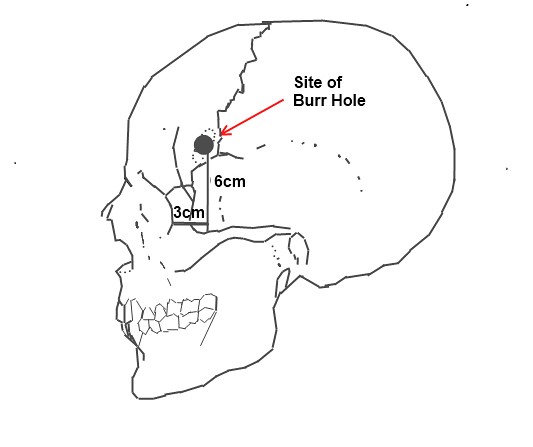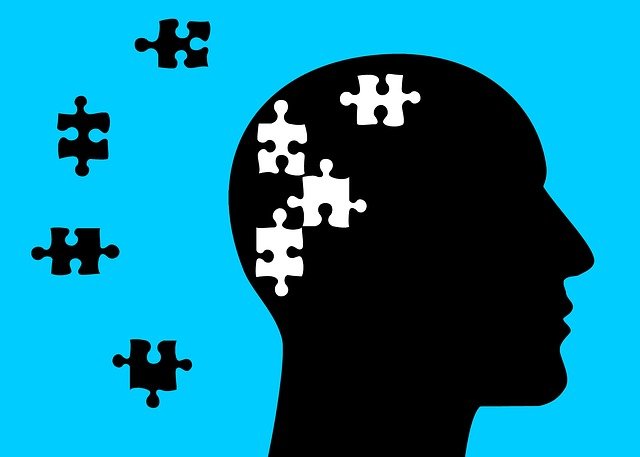Mental Health Myths
One of society’s most significant issues is the prevalence of mental health myths.
Mental Health is a deeply personal topic that makes people uncomfortable. An astounding number of mental health myths exist, and stigma still surrounds mental health. Despite widespread campaigns to encourage open discussion on mental health and share information, the issue is often avoided or ignored.
Although our approach to mental health has improved in recent years, we still have a long way to go if we hope to address and treat mental health conditions and eradicate the mental health myths surrounding them.
Below are 8 Mental Health Myths prevalent in society and some facts that quickly prove them false.
Mental Health Myths People Still Believe (and proof they are wrong)
Not so long ago, the way that we treated depression, anxiety, PTSD, or even autism was much different than it is today. In fact, many mental health conditions were treated through what is now seen as torture.
For example, there was a period in history when drilling holes in the heads of those who suffered from a mental health condition was common practice. Also known as burr holing, trephination was once a widely accepted treatment for various mental health conditions. In trephination, a small section of the skull was removed to alleviate the patient of headaches or to combat mental illness. This method was even used to fight perceived demonic possession.

Another standard treatment for mental health problems throughout history was bloodletting. Bloodletting originated from the beliefs of Claudius Galen, a Greek Physician who thought that diseases stemmed from an imbalance in the humors [1] of the body. Based on Galen’s writings, it was later thought that “an internal biochemical relationship was behind mental disorders.” This belief led physicians to hypothesize that bleeding, purging, and vomiting would correct many diseases and mental illnesses by restoring balance in the body[i].
Growing Approaches:
As society evolved and grew, other treatments were invented to treat the issues related to the mind. However, not all were pleasant for the patient or even safe. From Insulin and Metrazol to Isolation and lobotomy, new and innovative therapies for real or perceived mental health problems were at the forefront of medicine.
In this article, I will not get into all of the gory, twisted, dangerous practices that arose throughout history (perhaps I will create a historical post on this interesting subject at a later time). However, throughout history, many treatments for mental health were hazardous, inhumane, and often deadly.
Moving Forward From A Dark Past:
Thankfully, we ended the use of lobotomy to treat mental health and have banned electroshock therapy in most places. Still, it was not that long ago that these approaches were the norm. While things have improved, our current outlook is still very jaded and is riddled with mental health myths that can even impact the doctors who are meant to treat these conditions.
Evidence of misguided beliefs can be seen in society’s many common mental health myths. There are so many myths surrounding mental health that it would be impossible to share them all. However, below are a few of the more common perceptions that people hold regarding mental health and why they are entirely false.
Knowledge is the only way to enlightenment.
Mental Health Myth #1:
Mental Health is not a real issue. People are just too sensitive today.
While many would argue that mental illness is not an actual disease and would even go so far as to argue that mental health issues do not exist at all, modern medicine can quickly prove otherwise.
For as long as humans have been alive, Mental illness has existed.
The study of mental health has been studied for centuries. In fact, in 400 B.C, the Greek physician, Hippocrates, started to treat mental illness as a physical ailment with a biological cause. Although it took time before we could reliably diagnose mental health disorders, modern medicine now clearly understands human mental health and defines a mental disorder as a biological illness.

Thankfully medicine has taken steps to understand the biological origin of mental illness to better treat those who suffer from mental diseases.
Need more proof?
According to a study published in Molecular Psychiatry, new research shows a change in brain shape associated with severe mood disorders. The brain, or certain parts of it, will shrink when a person suffers from a severe mental health disorder.
More specifically, the hippocampus (an area of the brain responsible for learning and memories) has been shown to shrink when patients suffer from long-term mental health issues or remain untreated.
Good News Going Forward.
The good news is that knowing mental health conditions present physical ailments has allowed medicine to create new and innovative treatments that have been proven to work. Antidepressants, for example, can stop or even reverse brain shrinkage, as seen in major depressive disorder.
Thus, acknowledging mental disorders as biological illnesses is the first step toward treatment.
Mental Health Myth #2:
People who suffer from Mental Heath conditions should get out more.
This mental health myth is one of the most unhelpful yet prominent theories within society. If you have suffered from depression, known someone who has, or even experienced days when you just felt down and blue, you have probably been told that you need to ‘get out more.’
Unfortunately, this advice is highly unhelpful and upsetting for those with mental health conditions such as depression, anxiety, or many other disorders.
Telling someone with depression that ‘getting out more’ will cure them of depression is like telling a cancer patient that water will cure their cancer.
While time outdoors can help people better cope with depression and combat some of the symptoms, it will not cure them. Vitamin D, a vitamin that comes from sunlight, can lift your mood and make you feel happier. However, Vitamin D cannot change your biological makeup, and it will not instantly cure you of depression.
Stop & Think:
For many who suffer from depression, anxiety, and other mental disorders, going out anywhere is the last thing they want to do when they are feeling depressed. Realistically, for some people, it can even exasperate their symptoms. If anxiety or depression are accompanied by agoraphobia, for example, ‘getting out’ can quickly lead to feelings of panic or loss of control and lead to a full-scale meltdown or a panic attack.
It can be challenging to know what to say to someone suffering from any mental health crisis, and many times people try to be supportive by providing suggestions. While being helpful is a great thing, sometimes all the person wants is for you to listen to them, be with them, and try to understand them as best you can.
While it is impossible to be an expert without training or experience, there are things that you can do to help someone who is suffering from anxiety, depression, or another mental health condition.
Don’t:
- Minimize the person’s feelings.
- Dismiss their symptoms, thoughts, or fears.
- Deny their feelings.
- Ignore their emotions.
- Belittle them.
- Pretend to relate.
- Be apathetic.
- Bombard them with simple solutions.
- Compare them to others.
Do:
- Tell them you care.
- Ask how you can help.
- Make an effort to learn about their mental health issues.
- Do small tasks for them to make life easier.
- Express sympathy and show that you want to understand and help them.
- Show them they can trust you.
- Be supportive without being opinionated.
Mental Health Myth #3
There is nothing I can do to help someone with a mental health issue.
This mental health myth is so frustrating. You can do many things to help someone who has a mental illness.
You can:
- Let them know you are there if they need help or want to talk.
- Aid them in finding the care and support they need.
- Learn about their illness to better understand what they are going through.
- Treat them with respect and kindness.
- Be supportive.
- Don’t give up.
While you may not be able to ‘fix’ someone who suffers from a mental health condition, you can be a supportive friend and offer assistance in various ways. Much of the time, knowing someone cares is all the help a person needs.
Mental Health Myth #4:
Prevention of mental health issues is not possible.
We spoke about how a mental disorder is a biological illness. However, that does not mean mental illness is not preventable. Many factors affect the development of mental health disorders, and prevention focuses on those we can control.

For example, trauma can play a significant role in developing mental health disorders. Thus, prevention focuses on minimizing exposure to trauma and seeking help immediately following a traumatic experience.
Reducing stress, putting yourself in positive situations, and establishing healthy habits are also ways of preventing mental health issues.
Prevention of mental health problems aims to reduce the incidence, prevalence, and recurrence of mental health disorders and their associated disability. Preventive interventions are based on modifying risk exposure and strengthening coping mechanisms.
Mental Health Myth #5:
Mental Health problems are not common.
This mental health myth could not be further from the truth. Mental Health issues are incredibly pervasive. In fact, approximately 1 in 5 people experience a mental health issue each year. 1 in 25 will develop a severe mental health disorder.
Consider that 1 in 6 U.S. youth aged 6-17 experience a mental health disorder each year. What’s worse is that suicide is the 2nd leading cause of death among people aged 10-34.
Sadly, more than 52.9 million U.S. adults experienced mental illness in 2020.
So, tell me again that mental illness is not a common issue.
Mental Health Myth #6:

People with Mental Health issues are crazy and often violent.
There is such a wide variety of mental health disorders that this mental health myth proves itself wrong. However, for the sake of argument, let’s look at the facts.
Most mentally ill patients are not violent, and people with mental illness commit less than 7% of violent acts. In fact, those who suffer from severe mental health disorders are up to 10 times more likely to be a victim of violence. Those who suffer from mental health conditions are no more likely to be violent than anyone else in society.
Mental Health Issue #7:
Mental Health issues are a sign of weakness.
This belief is probably one of the most prominent mental health myths, especially when it comes to men. For whatever reason, the idea of mental health became synonymous with weakness somewhere throughout history, and eradicating this belief has proven to be very difficult.
Issues with mental health have nothing to do with being lazy or weak. You are not any less of a person because you are depressed or have anxiety, or whatever the case. Your mental illness does not define you or control you. Acknowledging an issue and seeking help does not make you weak. Period.
While I have few facts to back up these claims, I will say this…
Those who suffer from mental health issues are probably stronger than anyone else because they have been battling themselves for years and winning!
Seeking help for a mental health issue, doing what is best for you and your life does not make you weak. It makes you smart. While there will be people who want to drag you down or belittle you, just know that you are a warrior, and you will rise above!
Mental Health Myth #8:
Therapy and self-help are a waste of time.

To eradicate this mental health myth, I say this; treatment for mental health disorders varies as much as they do. There are so many options available today to treat various mental health conditions that you are sure to find one that helps you cope with whatever is ailing you.
Therapy and self-help have proven effective in numerous studies and can help you manage, cope, and heal if you are suffering from a mental health disorder.
Do not downplay the power of therapy or self-help.
These forms of treatment have been in the making for centuries and can be the life-changing moment someone needs to find their way out of the darkness of a mental health disorder or crisis.
Knowledge is the only way.
The list of mental health myths in this article is by no means exhaustive. Sadly, there is still so much stigma surrounding mental health and many more myths that need to be debunked. However, I truly believe that you must arm yourself with knowledge if you hope to combat any issue, and this one is no different. It is only through the spread of knowledge that we stand any chance of success.
You would not go into battle without sufficient training, would you?
So how can we continue to make assumptions about mental health without the facts?
.
Until Next Time,
Take Care OF Your Mental Health.
Footnote:
[i] Everyday Health – https://www.everydayhealth.com/pictures/worst-mental-health-treatments-history/